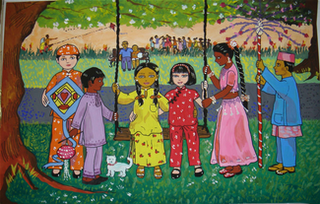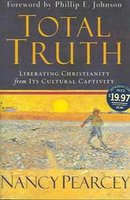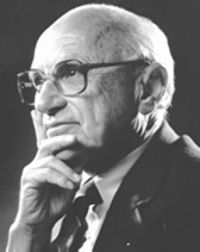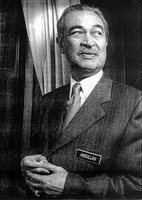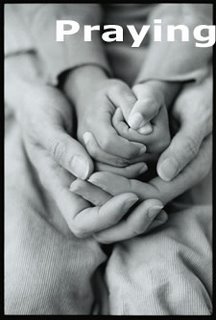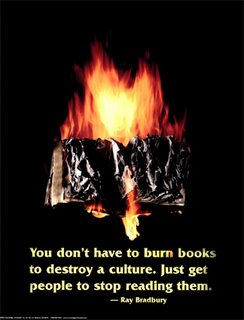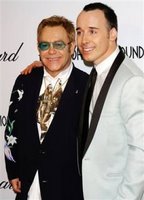The Christian church is called to be faithful embodiment of the gospel and its courageous agent of proclamation in a fast-changing world. Her missionary task can be nothing less than the restoration of God’s reign over all of life. Unfortunately, the church may become more influenced by the spirit of the age than living victoriously in the redemptive age of the Spirit.
 In their book “Changing the Mind of Missions: Where Have We Gone Wrong?” James F. Engel and William A. Dyrness sound the alarm that the modern missionary movement is in crisis. The signs of crisis can be detected in the church’s captivity in modern worldview, steady decline of financial support and withdrawal into monastic ghettos that disengages from the world. There is also widespread skepticism about whether Christian lifestyles are any different from others, prompting what Ron Sider dubbed as ‘the scandal of the evangelical conscience’. Instead of purveying pessimism, the authors see it as an opportunity for rethinking missions with a Kingdom perspective today.
In their book “Changing the Mind of Missions: Where Have We Gone Wrong?” James F. Engel and William A. Dyrness sound the alarm that the modern missionary movement is in crisis. The signs of crisis can be detected in the church’s captivity in modern worldview, steady decline of financial support and withdrawal into monastic ghettos that disengages from the world. There is also widespread skepticism about whether Christian lifestyles are any different from others, prompting what Ron Sider dubbed as ‘the scandal of the evangelical conscience’. Instead of purveying pessimism, the authors see it as an opportunity for rethinking missions with a Kingdom perspective today. They identify several weaknesses that beset the mission movement today due to the infections of modernity. In particular, the Church has fallen into two errors of omissions in relation to the Great Commission. Firstly, the rhetoric of fundamentalist-liberal conflict in America has resulted in either a “privately engaging, socially irrelevant” faith or a social transformation project that neglects evangelism . Even closer to home in Malaysia, it is far more common to hear sermons on ‘quiet time’, personal piety or ‘the end of the world’ than sermons on social justice, racial integration and the church’s role in Vision 2020.
The second indictment relates to the church making converts who did not graduate to become disciples. As a result of identifying success in terms of quantifiable conversions, pragmatic techniques to disseminate facts and elicit a ‘decision’ reduced disciple-making to ‘managerial missiology’ . Time-consuming, intangible process of spiritual formation like character and holiness took a backseat. While the Scripture does provide summaries like “Believe in Jesus and you shall be saved!” we need to be aware that such statements occur within the context of a sizeable narrative. Not surprisingly, mission objectives are still spelt out in terms of number of tracts distributed and the completion of world evangelization by certain measurable dateline . Fundraising strategies geared accordingly towards highlighting numerical superiority and ‘marketable concerns’ compete for ministry revenues to the extent that legitimate, less popular causes, such as leadership development, suffer.
Engel and Dyrness also propose to revise the missionary model which has as its starting point centers of power and wealth before moving to the periphery of those who were impoverished spiritually and physically . At the beginning of the modern missionary movement, missionaries from North America and Europe were sent to various parts of the world. Their legacy in education, churches and healthcare institution endures till this day. However, the Christian faith is also seen as inextricably linked to dominance and control of the colonial powers. My leftist uncle in China could easily recite how new frontiers were opened to missionaries by the barrel of the gun. Military defeats and humiliating concessions left an indelible mark on the Chinese psyche that Christianity is a ‘Western religion’. Well-meaning missionaries often find themselves caught in the position of “reluctant imperialists” .
 Diagnosis without recommending a cure makes for light work. To their credit, Engel and Dyrness prescribe several directions for decisive transformation. They contend that Scriptures make a parody of the ‘center-periphery’ model. The book of Acts recorded how the gospel made its way from Jerusalem, an insignificant backwater of the Roman Empire to the very household of Caesar. Today, churches in the so-called Two-Thirds World have emerged as significant missionary-sending contributors. They are demanding a Paul-Barnabas type of partnership with Western mission agencies rather than a Paul-Timothy partnership . Expertise, resources and knowledge to develop indigenous leaders should be imparted without using them as leverage for control. Vinoth Ramachandran described a cross-cultural, mutual-listening relationship today as indispensable for faithful witness to Jesus Christ.
Diagnosis without recommending a cure makes for light work. To their credit, Engel and Dyrness prescribe several directions for decisive transformation. They contend that Scriptures make a parody of the ‘center-periphery’ model. The book of Acts recorded how the gospel made its way from Jerusalem, an insignificant backwater of the Roman Empire to the very household of Caesar. Today, churches in the so-called Two-Thirds World have emerged as significant missionary-sending contributors. They are demanding a Paul-Barnabas type of partnership with Western mission agencies rather than a Paul-Timothy partnership . Expertise, resources and knowledge to develop indigenous leaders should be imparted without using them as leverage for control. Vinoth Ramachandran described a cross-cultural, mutual-listening relationship today as indispensable for faithful witness to Jesus Christ. Part of the ‘Gracious Revolution’ would also involve the abandonment of modernity’s individualistic autonomy and “creation of communities of common people performing uncommon deeds”. Membership in a faith community is not an optional add-on to conversion. Rather than an institution, the church should be characterized more as a community, which Leslie Newbigin called “the hermeneutic of the gospel, its very message and medium” . The full potential of a local church is not realized when its role is seen only in terms of providing resources and sending missionaries. The authors propose a paradigm in which the church takes proactive ownership of specific tasks in mission in partnership with other agencies. As Emil Brunner put it, the church exists by mission as fire exists by burning.
With regards to the ‘public facts versus private values’ assumption of modernity, Engel and Dyrness call for a recovery of the Puritan’s combination of personal piety and an all-encompassing worldview which subjects all aspects of life to God. They argue that social transformation should not be reduced as a consequence of evangelism or merely a component of evangelistic strategy. Social involvement and evangelism should be ‘inseparable elements in Christ’s kingdom that embraces all of creation’. To echo Abraham Kuyper, there is no sphere of life that is not subject to the sovereignty of Jesus Christ.

I think the authors’ critique of market-driven approaches to mission is timely. Surely, evangelism should go beyond presenting 4-point propositional facts to elicit decisions that secure a ticket to heaven. The gospel must be “modeled, and then proclaimed”. Our message would be more authentic and appealing if it is incarnate in our communities of faith, foreshadowing the eschatological Kingdom. Genuine fellowship involves mutual self-emptying, servant leadership and deep sharing of lives, not just a feel-good huddle. The authors illustrated these issues through a case study of the fictional mission agency called Global Harvest Mission. I feel that the illustrative effects are not especially necessary in contributing any substantial weight to their case.
True motivation for missions is not just “about selling some spectacular product, eternal life or forgiveness of sins, however wonderful these realities are”. The nature of gospel proclamation as heralding the kingship of Christ has solid historical basis in New Testament studies. I greet the authors’ call for a more holistic approach to mission that encompass the entire creation with a hearty amen. At the same time, I wished that they could have interacted with ‘passion for God’s glory’ as the primary motivation that has driven missionaries of earlier generations.
But it seems that Engel and Dyrness failed to discuss the pitfalls of postmodernism while lauding it as a “decided pendulum swing in a more healthy direction” . They are probably on target when discussing the emerging trend of people inundated by absolute, universalistic claims of rationality and a desire for the spiritual in the context of an authentic community. However, is the openness to experiment with various religions symptomatic of a hunger to discover what Schaeffer called ‘true truth’? Or is it simply the desire to choose any ‘truth’ that fits one’s own personal tastes? After all, if there is no objective truth, why not shop for the latest flavor in the supermarket of religions? Perhaps the authors could have recognized the challenge of mission in a postmodern culture includes affirming unique claims of Christ in the face of relativism.
Personally, I’m less sanguine about postmodernism being “one of the greatest opportunities of history for the Christian faith” . Michael Horton has an interesting analysis that what we call postmodern may in fact be ‘most-modern’ or a more radical form of the same old thing . Such modern features like autonomous individualism, specialized consumerism and suspicion of the past are becoming more rampant. Even if a new epoch is emerging, we should be cautious of its challenges as well.

I never cease to be amazed at how God could work out His redemptive plans in the world despite our faltering and sometimes, counter-productive efforts. The modern missionary movement, despite obvious weaknesses, has made significant strides to overcome geographical and linguistic barriers in bringing the good news of salvation to new frontiers. At its best, the emphasis on fundamental doctrines has always accompanied gospel presentation like personal relationship with Jesus, atonement for sins and justification through faith alone.
At the same time, we need to reexamine and align our approach to missions closer to the biblical model. Engel and Dyrness have rightly identified important areas that need to be urgently addressed. The church’s proclamation, kerygma, must be carried out in the context of authentic community (koinonia) and service to the world (diakonia). However, the antithesis should not be framed as “modernism versus postmodernism” because there is no unmixed blessing this side of heaven. The transforming power of the gospel should be allowed to speak to every culture, especially our own.
It is also crucial that we do not fall for false dichotomy in choosing between relationship over against propositions, story over against propositional doctrines, social action over against evangelism or humility over against convictions. The evangelical content of our message needs to be recovered and unleashed to renew the world, modeling a foretaste of the future Eschaton. If we do not put asunder what God has joined together, the missionary enterprise would have enduring relevance and render better service to God and men.
Bibliography
1. Engel, J.F. and Dyrness, W. A. Changing the Mind of Missions: Where Have We Gone Wrong? Downers Grove, Illinois: InterVarsity Press, 2000.
2. Sweet, L. (ed.) The Church In Emerging Culture: Five Perspectives, Grand Rapids: Zondervan, 2003.
3. Wright, T. What Saint Paul really said: Was Paul of Tarsus the real founder of Christianity? Oxford: Lion Publishing, 1997.




















